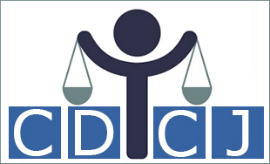On 23 October the Council of Europe presented the results of its study on “The main factors contributing to the underrepresentation of women judges in the management of the common courts in Georgia”.
The study was conducted by the “Applied Research Company” and used both quantitative and qualitative research methods involving representatives from the judiciary, parliament, NGO sector, field experts and law students.
Mzia Todua, Acting Chief Justice; Levan Gzirishvili, Member of the High Council of Justice; and Cristian Urse, the head of the Council of Europe Office in Georgia addressed the audience in their opening remarks.
The study identified potential incentives that could encourage more balanced representation of women judges at managerial positions: reducing of judicial workload; removing managerial functions from Chairpersons; increasing the duration of paid parental leave and introducing relatively flexible working hours.
Time poverty emerges as a barrier for women to achieve career advancement. Unlike their male counterparts, women judges often struggle to balance work and family responsibilities. The burden of administrative tasks related to the managerial position in the judiciary makes it less attractive to women.
Based on the study results, two contradictory discourses were revealed in terms of determining the criteria for appointing chairpersons of courts/board/chambers. As perceived by NGO representatives, the absence of set criteria and procedures is problematic, as the process is not transparent and enables various groups to make subjective decisions; judges on the other hand believe that setting criteria for appointing judges to management positions may be counterproductive.
Introducing a target number as a mechanism to increase the share of women in the management of the court system was also addressed in the study. One discourse says that a quota is an important mechanism to increase the share of women in the management of the court system. As for the second discourse, the introduction of a quota is positive discrimination and may backfire instead of support the representation of women in management.
As believed by judges participating in the study, the system has two main challenges and they are not associated with gender but with trust and the backlog of courts.
The study is prepared by ACT for the Council of Europe project “Support to the Judicial Reform in Georgia” funded by voluntary contributions of Bulgaria, Liechtenstein, Lithuania, Latvia, Norway, the Slovak Republic and Sweden to support the implementation of the Council of Europe Action plan for Georgia 2016-2019.



